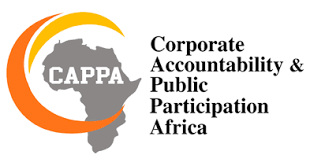By Samuel Ogunsona
The growing ties between Nigerian Government officials and Tobacco Companies pose a big threat to public health, the Corporate Accountability and Public Participation Africa (CAPPA) has said.
The pro-life group condemned the interactions between Nigerian government and tobacco industries, in solidarity that health risks for millions of Nigerians.
The pronouncement was made at the launch of the Nigeria tobacco Industry Interference Index 2023 held on
Tuesday.
In a press release signed by it Research Officer, Zikora Ibeh, made available to Irohinodua, the group said unhealthy interaction between the tobacco industry and public officials, mostly in the agriculture sector where top government officials have been documented in several instances, participating in the industry’s activities and openly lauding them remain a major threat to public health.
Tobacco products are known to pose major health hazards including but not limited to cancer.
She said, “It is on this note that we once again express our firm rejection of the tobacco industry’s growing attempts and lobbying to market new products, including non-combustible alternatives like snus, chew, and dip, among others.
Contrary to the industry’s narrative, these so-called ‘safer’ alternatives still contain harmful chemicals that pose significant health risks. Research by health scientists on emerging and newly identified health risks has shown that these products, often touted as safer, carry considerable health risks”.
“They have detrimental effects on cardiovascular health, increase the risk of diabetes and metabolic syndrome, impair oral health, and pose risks to both mothers and their babies” She added.
Zikora also expressed that tobacco industries across the country has benefitted from government initiatives which includes the Best Exporter to African Markets which was revived by BATN in 2022.
She said, “These activities not only serve to burnish the public image of the industry but also bestow an unwarranted level of legitimacy on them in contravention of national tobacco control regulations.
Also, the continued engagement of top-level government officials and state authorities with tobacco companies in social functions and other events further complicates the issue, casting doubts on the government’s commitment to public health”.
“The industry has also seemingly benefitted from government initiatives such as the instance of the BAT receiving an award for the Best Exporter to African Markets in 2022 from the Nigeria Export Promotion Council, an agency under the Federal Ministry of Industry, Trade and Investment. This kind of interaction suggests possible behind-the-scenes engagements between the industry and government agencies and raises serious concerns about the transparency of such engagements, given the clear provisions of the Nigerian tobacco control regulations on the prevention and management of such dealings with the tobacco industry”.
“Although measures to curtail the aforementioned abnormalities exist in the National Tobacco Control Act 2015 and the National Tobacco Control Regulations 2019, there are ambiguities in the law that allow the tobacco industry to exploit loopholes, further hampering our efforts in tobacco control. Moreover, the lack of a systematic approach to consistently raise awareness within government departments about the WHO FTC Article 5.3 Guidelines (which essentially speaks to the protection of tobacco control policies from the industry’s interference), is a significant lapse that needs immediate attention”. She explained.
CAPPA’s Executive Director, Akinbode Oluwafemi said despite existing policies, the government’s refuses to disclose it I nteractions with the tobacco industry which has hinder progress in tobacco control efforts.
According to him “Whilst Nigeria’s National Tobacco Control Act and its Regulations have largely checked the activities of tobacco corporations and entities, the industry has exploited some weaknesses in these laws and gaps in the system to interfere in tobacco control.”
“Although measures to curtail the aforementioned abnormalities exist in the National Tobacco Control Act 2015 and the National Tobacco Control Regulations 2019, there are ambiguities in the law that allow the tobacco industry to exploit loopholes, further hampering our efforts in tobacco control. Moreover, the lack of a systematic approach to consistently raise awareness within government departments about the WHO FTC Article 5.3 Guidelines (which essentially speaks to the protection of tobacco control policies from the industry’s interference), is a significant lapse that needs immediate attention” He added
“To counter these, we have proposed some measures as you will see in the report such as the full implementation of the National Tobacco Control Act and its regulations, enhanced transparency in government dealings with the tobacco industry, synergy between federal and state governments, and regular conflict-of-interest disclosures by public officials. It is our hope that this report jolts the Nigerian government and all stakeholders to stand up for public health and fortify their defences against the machinations of the tobacco industry” He said l.

